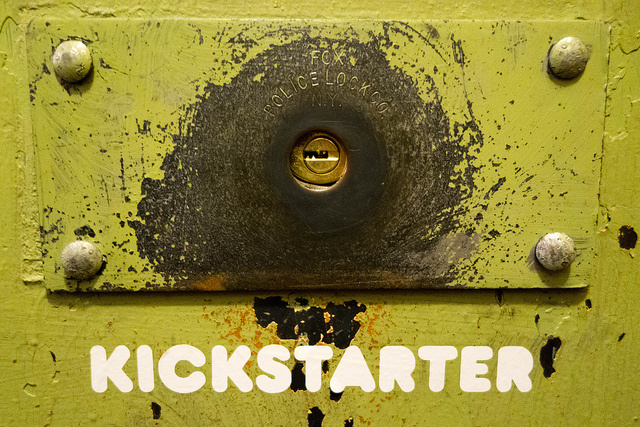
Crowdfunding platform Kickstarter was approached by a competing platform, ArtistShare, in 2011. Just what happened next is disputed. ArtistShare founder Brian Camelio says he wanted to strike a business deal with Kickstarter.
In court papers, Kickstarter said that Camelio had a patent he said Kickstarter was infringing, and Camello intended to sue. Kickstarter took the matter to court first, filing a lawsuit seeking to invalidate the patent. The move left Camelio "stunned and disappointed," he said in a 2011 interview.
This week, Camelio, who founded ArtistShare in 2003, may be even more disappointed. His patent, "Methods and Apparatuses for Financing and Marketing a Creative Work," is no more. It was invalidated in an order (PDF) published yesterday, four years after his dispute with Kickstarter began.Over the course of the litigation, the patent landscape changed considerably. In particular, last year's Alice Corp. Supreme Court decision made it easier to knock out some computer-related patents as "abstract."
In the lawsuit, ArtistShare tried to convince the judge to allow its patent, claiming that it wasn't trying to own crowdfunding. ArtistShare lawyers insisted that the patent wasn't overly general and said that it covered “particular systems for managing, marketing, and financing a creative work."
"Defendants’ repetition of words like 'particular' and 'specific' in bold italics when referring to the claims in the ‘887 Patent does not make them so," wrote US District Judge Katherine Failla in yesterday's order.
It was a bit beside the point, since the patent could still be out of bounds even if it described a specific "way" of crowdfunding.
"Just because the claims do not preempt all crowd-funding does not make them any less abstract," Failla continued. "Nothing about the ‘887 Patent transforms the concept of crowd-funding into patent-eligible subject matter."
ArtistShare's patent claims were "squarely about patronage," an ancient concept. Failla quoted Kickstarter's expert, who had testified that "offering rewards for various levels of financial support" has a "history dating back centuries." Modern examples include public television and radio stations.
Everything else about the patent just described "either conventional computer activities or routine data-gathering steps."
In other words, ArtistShare had described a basic element of human culture, dressed it up with some fancy computer language, and sought payment from others doing it. After four years of litigation, it didn't work.
"We’re pleased the Court agreed that this patent is invalid, and we’re happy to see this case reach its conclusion," said Kickstarter Deputy General Counsel Michal Rosenn in a statement on the case. "This is a win for artists, ideas, and creative freedom."
Kickstarter has been involved in two other patent cases since the ArtistShare lawsuit. In 2012, the company was caught in the middle of a patent battle between two 3D printing companies. 3D Systems sued Formlabs and named Kickstarter as a defendant for acting as a platform for Formlabs' fundraising.
Earlier this year, Kickstarter and other crowdsharing platforms were sued by a non-practicing entity called AlphaCap Ventures in a case decried by activists as a particularly abusive patent trolling situation. The case was settled in May.
reader comments
30